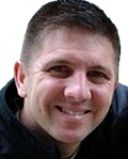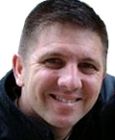
Career
How to Find Your Career on the Autism Spectrum
How to find the right job for you.
Posted July 29, 2010 Reviewed by Jessica Schrader
"Work spares us from three vices: boredom, vice, and need." –Voltaire
Do you want to have a sense of meaning and purpose? Do you want to feel a sense of pride in what you do and accomplish? Then finding a career you can thrive in is going to be a key piece of the puzzle for your personal growth and development.

I am indebted to both Temple Grandin, Ph.D., and to author Rudy Simone for the ideas on which this article is based. Grandin is probably well known to you as a professor who is diagnosed with autism. Rudy Simone is self-identified as an Aspie, and has recently written a book called Asperger's On the Job.
Getting Started
It's important to be honest with yourself about your intellectual capabilities. I, for example, am not very gifted in the areas of math and science. As much as I may have aspired to have my Ph.D. in the past, the subjects of statistics and research don't come very easily to me. In the same way, you must be honest with yourself about your intellectual capacities. If you are in the low or below-average range of IQ, it just means that you may need to have more support and coaching, and that your career choices may be a little more limited. However, it will give you a better idea of what choices you may be able to be successful in.
If you are of average or above-average intellectual ability, you may have more possibilities. Just remember that the social aspects of any job will be challenging for you. And I will tell you now: buy Simone's book. Asperger's on the Job is an invaluable resource for you, for your employer, and for any therapist or advocate who is working with you. It contains tips and strategies for you, and for your employer.
Be Aware of Your Hard Wiring
Feel free to agree or disagree with Grandin here, but these are some characteristics I learned from reading this article she wrote. Many individuals on the autism spectrum have difficulties with short-term memory. Therefore, there are a number of jobs that are not particularly suited in this regard: some examples she gives of these jobs would be cashier; short-order cook; waitress; taxi dispatcher, airline ticket agent, futures market trader, receptionist/telephone operator. You can read her article for more detail on her reasoning for these being a poor fit.
If you are an individual on the autism spectrum and you have noticed that you are a very strong visual thinker, there is a whole range of jobs that may be ideal for you. Grandin lists some of these as examples:
- Computer programming
- Drafting
- Commercial art
- Photography
- Equipment designing
- Animal trainer or veterinary technician
- Automobile mechanic
- Computer-troubleshooter and repair
- Small appliance and lawnmower repair
- Handcrafts of many different types such as wood carving, jewelry making, ceramics, etc.
- Laboratory technician
- Web page design
- Building trades
- Building maintenance
- Factory maintenance
You may be a non-visual thinker, but be good at numbers, facts, or music. Here are some suggestions posed by Grandin:
- Accounting
- Library science/reference librarian.
- Computer programming
- Engineering
- Journalist
- Copy editor
- Taxi driver
- Inventory control
- Tuning pianos and other musical instruments, can be done as freelance work
- Laboratory technician -- Running laboratory equipment
- Bank teller
- Clerk and filing jobs
- Telemarketing
- Statistician
- Physicist or mathematician
If you are a person on the autism spectrum who is nonverbal or struggle with your verbal skills, here is a list of jobs that Grandin has suggested worth researching:
- Reshelving library books
- Factory assembly work
- Copy shop
- Janitor jobs
- Restocking shelves
- Recycling plant
- Warehouse
- Lawn and garden work
- Data entry
- Fast food restaurant
- Plant care
Rudy Simone, in Asperger's on the Job, has a chapter entitled, "Finding the Perfect Job For You—The Personal Job Map."
Make Your Personal Job Map
First you want to list your areas of obsessive interest. Nothing is off-limits here, too general or too specific. You want to brainstorm your interests, because these serve as some clues to what could be a good career for you.
Next, you will be making the following lists for each of your areas of obsessive interest: teaching; practicing, and studying. In thinking about both teaching and practicing consider the following.
What are the Best Things About your particular areas of interest? If your interest is drawing, what are the best things about being in a career that would require your talent and obsession for drawing particular types of drawing? List as many things as you can.
Next, think about what triggers there might be in this particular area of interest, as a career, that might trigger your Asperger buttons. For example, would working in a noisy environment cause you to be unable to focus or concentrate? Or having too much overhead fluorescent lighting? Or having deadlines that are too much pressure for you?
Next, you would want to think about solutions that can allow you to work with your areas of interest without being excessively triggered. For example, freelancing as a commercial artist might allow you to do your work in a setting that you control.
Think through the same process when you think about practicing. For example, Simone gives the example of a musician. Part of being a professional musician would include playing music for a living. The triggers might include the amount of socializing involved, or the amount of noise that comes with a room full of people. A possible solution would include playing for music as part of an orchestra for a theater that does musicals, or playing music for a commercial recording studio.
On the list called studying, you will want to think about what relevant qualifications you already have in that area of interest. List all the courses you have worked on, previous jobs you may have had, projects you may have worked on in school. Then, think about what qualifications or coursework or education you may need to get, and where you can obtain this training, education, and experience.
Once you have finished this process, you will want to go through all your triggers and identify which career settings or areas of interest are an absolute impossibility based on how triggered you might get. By eliminating these, you may be preventing a lot of future pain.
But you will also want to notice the areas of interest that you are most interested in or passionate about. Also notice your best solutions.
Finally, you will want to make a list called course of action or realization. By writing down everything in the above exercise, you may come to see that, while you love certain interests, you may be better at practicing that area of interest in one setting versus another. You may be surprised to realize that you already have a lot of training and experience in one area, or that you may be able to get the skills you need with a certain program of training.
You may also want to consider getting professional career testing through a licensed career counselor or psychologist. This testing will complement the work you have done above.
I hope this will be a beginning toward helping you pursue your journey toward a career you will truly enjoy. I look forward to hearing your ideas, suggestions, and experiences.



